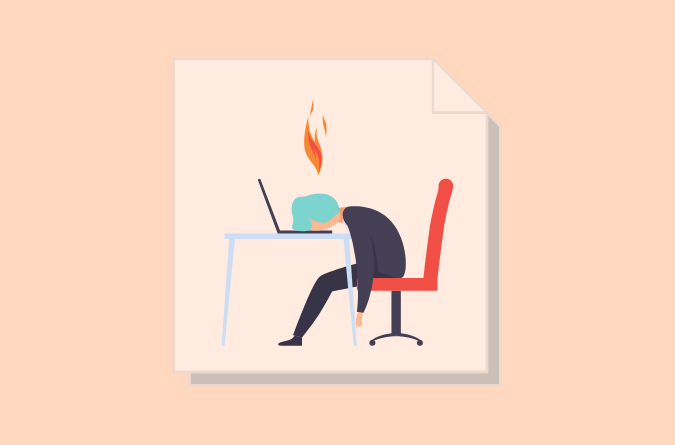3 Ways To Save Your Team From Burning Out

Post Categories
Caitlin
Even your most high-performing of employees can eventually hit a point of burnout. In fact, they’re more likely to get burnt out than less productive employees. As a manager or supervisor, the last thing you want is for your team to work themselves into this state. It’s a disaster for productivity, employee well-being, and work quality. So, how do you spot burnout and what can you do about it?
Signs of burnout
The first step in managing burnout is recognizing burnout when you see it. It doesn’t always translate into someone wandering the halls looking like they haven’t slept in six months. In fact, it more often translates into symptoms such as:
- Uncharacteristic cynicism or pessimism
- Lack of focus
- Irritability or outright bursts of anger
- Increased isolation from coworkers
If you see multiple team members with these symptoms, they’re probably burnt out.
Takeaway: Don’t automatically equate exhaustion with burnout. Someone with a newborn at home can be exhausted and still engaged with their work.
Talk with team members
You can’t realistically manage what you don’t understand. Burnout may be work-related or it may stem from something in a team member’s personal life. Sit down with each team member individually. No one wants to divulge problems in front of a crowd. Note that their productivity or work quality has slipped recently. Ask them if there is something going on to account for that slip.
They may tell you outright what the problem is or they may shrug it off. If they try to shrug it off, take a more oblique approach. Ask them what they’re working on currently and what could make it easier or more engaging.
Takeaway: With a bit of gentle prodding, most people will come clean about what’s holding them back.
Making adjustments
If the problem is work-related, you can usually do something. For example, you can usually shift low-priority tasks to non-team members. This frees team members to focus on the high-impact work. If the team members have spent too much time doing the same tasks over and over again, mix things up. Pro Tip: ask each person if they’d like to do X, Y, or Z alternative task before you assign it.
For someone dealing with a serious problem at home, you have fewer options. In most cases, the best you can do is lighten the workload a little and understand that it’ll take some time for the person to bounce back.
Takeaway: You can only exert a certain amount of control here.
Always be proactive
Burnout happens most often when team members get overburdened with non-critical tasks and repetitive work. Stay proactive about helping team members avoid burnout. Check in with team members about their workload a few times per year. Make a habit of switching up tasks to keep the work fresh.
If you discover people burning out because everyone is always overworked, it’s probably time to add some fresh blood to the pool. Let Timpl help you pick high performers to lift some of the burden.


